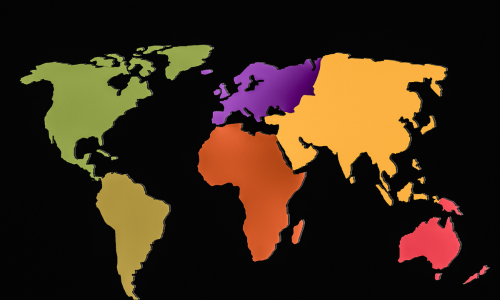
The landscape of global trade is experiencing a profound transformation, driven by rapid technological advancements, evolving political landscapes, and the impact of significant global events, notably the COVID-19 pandemic. These factors compel businesses and economies across the globe to adapt and innovate. This article delves into the intricacies of the contemporary global trade environment, exploring regional adaptations, and evolving strategies in the business world, and drawing insights from recent, pertinent case studies.
Industry Trends
We are witnessing a pivotal shift in the global trade paradigm. The trend towards reshoring and supply chain diversification has accelerated, particularly as a response to the pandemic. Amidst this shift, China maintains its position as a global manufacturing powerhouse, bolstered by its extensive infrastructure and skilled labour force. Nonetheless, it grapples with challenges including trade tensions and an increasing demand for sustainable practices. Concurrently, Latin America is navigating a transition towards a multipolar trade environment, with China emerging as a prominent partner and reshaping the economic landscape of the region. This evolution presents a complex mix of opportunities and challenges.
Business Strategies

In response to these dynamic changes, businesses are adopting a variety of strategies. Embracing digital transformation and technological integration is critical to stay competitive. Additionally, companies are venturing into new markets and diversifying their supply chains to mitigate risks associated with dependence on specific markets or suppliers. These strategies underscore the critical importance of adaptability and innovation in the rapidly evolving landscape of global trade.
Case Studies
China’s Trade Facilitation in Response to COVID-19
China’s strategies during the pandemic showcased its capability for effective trade facilitation. Measures such as the expedited release of goods and reduced tariffs on essential imports ensured continuity in trade flows, underscoring the significance of agile and responsive trade policies in times of crisis.
Post-Brexit EU/UK Trade Relations
Brexit has significantly redefined the trade dynamics between the EU and the UK. The UK-EU Trade and Co-operation Agreement (TCA) introduced new complexities affecting areas such as taxation, intellectual property, and supply chain management. These changes necessitated rapid adaptation, highlighting the need for flexibility in international trade relations.
Expert Opinions
Experts in global trade emphasize the necessity of agility and strategic foresight. Keeping abreast of international regulations, market trends, and technological progress is imperative. Predictions for the future of global trade include a heightened emphasis on digitalization, sustainability, and the development of resilient supply chains capable of weathering global disruptions.
Global Trade Trends in 2024

Impact of Elections on Trade Policies
The upcoming 2024 elections, such as the European Parliament elections, are poised to significantly influence international trade policies. Shifts in political leadership and policy directions can reshape trade dynamics, underscoring the necessity for businesses to remain informed of global political developments.
Emerging Green Supply Chain Regulations
New regulations, including the EU’s Carbon Border Adjustment Mechanism (CBAM) and the Deforestation Regulation, are set to impact global trade practices significantly. These developments highlight the escalating importance of adopting environmentally sustainable practices in international trade.
Rising Cybersecurity Risks
With an increase in cybersecurity threats, businesses are urged to enhance their cybersecurity strategies. The integration of AI in trade processes brings new challenges and opportunities, emphasizing the critical need for robust cybersecurity measures. Learn more here
The Emergence of ‘Friend-shoring’ Trends
The shift towards ‘friend-shoring’ is influencing global supply chains as manufacturers seek geopolitical closeness and risk mitigation. This trend is leading to the reorganization of shipping routes and an intensified focus on regional trade connections.
Growth of Digital Trade
Digital trade, especially in regions like Africa and Asia Pacific, is reshaping the global economy. The surge in digitally delivered services and advancements in digital trade governance are opening up novel opportunities for businesses, particularly for MSMEs.
Accelerated Modernization of Customs
The ongoing digitalization of trade processes, driven by customs agencies, is enhancing trade facilitation and improving risk management. This digital transformation is granting companies improved visibility of their supply chains and more effective management of compliance obligations.
Challenges in Trade Finance

In 2023, the global ‘trade finance gap’ widened to a staggering US$2.5 trillion, highlighting the increasing difficulty of accessing trade finance amidst a turbulent geopolitical and economic climate. This trend underlines the pressing need for businesses to engage with regulators, advocating for a balanced and fair regulatory response.
Successfully navigating the evolving landscape of global trade demands adaptability, informed decision-making, and an innovative mindset. Comprehending emerging trends, embracing technological advancements, and learning from real-world case studies, such as China’s pandemic response and the post-Brexit EU/UK trade dynamics, are crucial. These insights empower businesses to effectively confront challenges and capitalize on the opportunities presented in the fluid arena of international commerce. As the global trade environment continues to transform, it is imperative for businesses to stay agile and visionary, ready to adapt to novel trends and the emerging needs of the market.
We’ve unpacked a lot today at Biz Step Ladder, and now it’s your turn to add to the dialogue. Do you have insights or experiences that could expand on what we’ve discussed? Perhaps you’ve identified an angle we haven’t covered. Jump into the conversation below with your comments and let’s continue the learning journey together. Your input is not just welcome—it’s a vital part of our community’s growth. So, what are your thoughts? Share them below and let’s enrich our business wisdom collectively!
Discover related content by exploring Digital Marketing Horizons: Exploring New Trends





